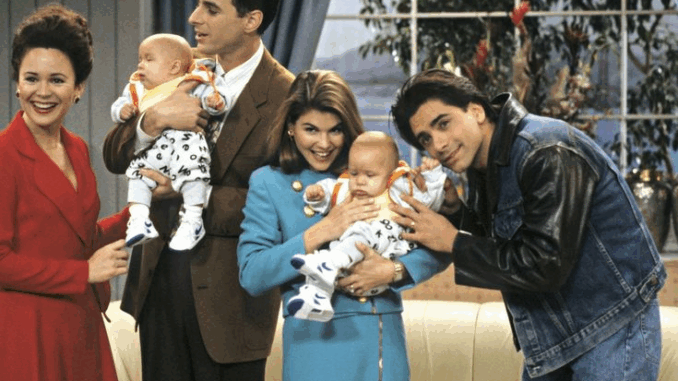
Andrea Barber, widely recognized for her role as the quirky and lovable Kimmy Gibbler on the beloved family sitcom Full House, recently reflected on an uncomfortable and inappropriate question she was repeatedly asked during the height of the show’s popularity. In a candid conversation on her podcast How Rude, Tanneritos!, which she co-hosts with Jodie Sweetin (Stephanie Tanner), Barber revisited moments that exposed the darker side of fame, especially for young stars.
The “Gross” Question
During their podcast discussion, Barber and Sweetin spoke openly about the many awkward interviews they had to endure as teen actors. One question in particular stood out for both of them — and not in a good way. They were frequently asked whether they ever had a crush on John Stamos, who played the charming and handsome Uncle Jesse.
Barber recalled this question with a mix of frustration and disbelief, describing it as “gross” and completely inappropriate. Both she and Sweetin were minors during the original run of Full House, and they viewed Stamos, who was significantly older, as a mentor or even a big brother figure — not someone they ever saw through a romantic lens.
Sweetin echoed the sentiment, pointing out how invasive and uncomfortable it felt to be asked questions that sexualized relationships on set or blurred the lines between professional co-working relationships and personal feelings. “That is a gross question,” Sweetin said. “It was weird and inappropriate, especially since we were kids.”
Child Stars and Invasive Media Culture
The exchange between Barber and Sweetin highlights a longstanding issue within the entertainment industry: the tendency to ask young actors inappropriate questions that adult actors would never face. It also underscores how child stars, particularly girls, are often forced to answer questions that objectify or overly adultify them, even in the context of a family-friendly show.
Barber and Sweetin shared how these types of questions not only made them uncomfortable but also detracted from their work as performers. Instead of being asked about their characters or their growth as young artists, they were subjected to tabloid-style curiosity that had little to do with the actual content or value of the show.
The Importance of Boundaries
Reflecting on these experiences, both actresses emphasized the importance of setting boundaries and protecting young actors from this type of invasive scrutiny. Barber pointed out that while being a part of Full House was a joyful and formative experience in many ways, moments like these reminded her of how vulnerable young stars can be in an industry that often prioritizes ratings and sensationalism over decency.
Sweetin added that the media has a responsibility to treat child actors with the same level of respect afforded to adults. She emphasized that producers, publicists, and interviewers must do a better job of creating environments where young people feel safe and aren’t pressured to engage with adult topics prematurely.
Moving Forward With Advocacy
In recent years, both Barber and Sweetin have become outspoken advocates for mental health, personal boundaries, and ethical treatment in the entertainment industry. Their podcast is one way they are reclaiming their narrative, offering fans a more honest and mature perspective on the show that made them famous.
Rather than shying away from the uncomfortable parts of their past, they confront them head-on — using their platform to start conversations about media ethics, fame, and the importance of protecting child actors from exploitation.
Conclusion
Andrea Barber’s recollection of being asked inappropriate questions as a young actor on Full House is not just a reflection on her own experiences, but also a broader commentary on how the entertainment industry and media outlets have historically treated child stars. By speaking up, she and Sweetin are challenging outdated norms and setting a new standard for how young performers should be treated.
Their openness serves as a reminder that even in the most wholesome of environments — like a family sitcom — there can be troubling undercurrents that deserve scrutiny. Most importantly, their voices today are helping to ensure that the next generation of young actors won’t have to endure the same invasive questions they once did.
